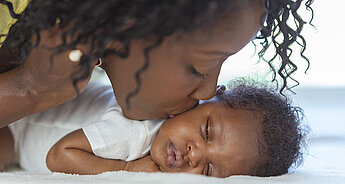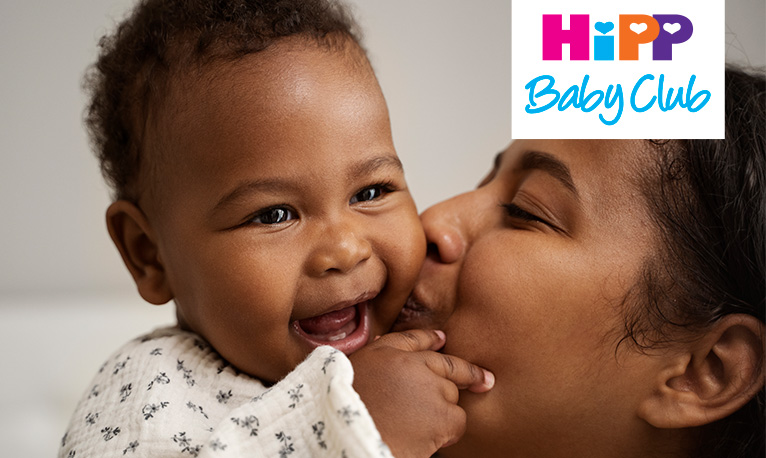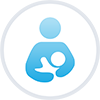Look after yourself

After your baby arrives, it's important not to neglect your own needs. Here's how to keep healthy, so you can take good care of your little one.
Your new baby is here at last - congratulations! If you've got the sneaking sensation that everything in your life just changed for good, you're most likely right!
It might be hard to come down from the high of giving birth, but try to get some rest, too. These early days, when your baby is so tiny, are a great chance to get to know and marvel at this new little being who has entered your life.
Changes in your body
It will take a while for your body to recover from all the work it's just done, so don’t be surprised if you feel a bit overtired and emotional after the birth. You’ll probably feel some pains in your tummy in the first few days as your uterus contracts – don't worry, they'll be nowhere near as bad as the contractions were! You'll also have some bloody discharge (called ‘lochia’) for up to six weeks, as your uterus contracts to its pre-pregnancy size. (Because your uterus is still healing, you'll need to use pads instead of tampons, at least until after your postnatal doctor visit.) Remember to keep doing your pelvic floor exercises. You may not feel like doing these straight away but they are important to help you recover from the birth.
Getting enough rest (is it possible?)
If you feel a bit like a zombie these days, you're in good company: all new parents feel the lack of sleep in the first few months. Being sleep-deprived can leave you feeling cranky, emotional, forgetful and clumsy.
Let us be the first to reassure you that it's perfectly okay to let the housework go - or ask other people to do it! If your partner or a family member can take over some of the duties, like bathing, changing or cuddling before bedtime, it will give you a chance to take a breather (or maybe even a nap).
It might also help to keep in mind that when you're sleep-deprived, even simple tasks like making a cup of tea will take longer – so try to go easy on yourself and take things slowly. Believe it or not, your baby will sleep through the night before long!
Eating for energy
If you're feeling exhausted, it's very tempting to resort to caffeine or sugar for a quick pick-me-up. But having too much caffeine isn't a good idea if you're breastfeeding – and even if you're not, there are better ways to keep your energy levels up.
Eating regular meals and snacking on healthy, nutrient-dense foods like organic pumpkin or sunflower seeds or organic fruit will help to keep your energy levels up.
If you find you're often too tired at the end of the day to prepare a proper meal, try prepping something earlier in the day, when you're a bit perkier. Or if friends are asking what they can do to help, send them a copy of a tasty, freezable recipe and ask them to make a double batch for your freezer! Some nights, having a home-cooked meal to hand when you need it is a real lifesaver.
Bouncing back after baby
Try to ignore any pictures of celebrities you might have seen: the vast majority of new mums don’t regain their old shape straightaway. The best way is to take good care of yourself: eat healthily, try to get enough rest, take your baby for regular walks and remember to do your postnatal and pelvic floor exercises. Most of all, give yourself some time! Your body has just done an amazing, difficult job, and it will take a while before you're feeling like your old self again.
Once you've had your postnatal checkup (around 6 weeks after the birth), your doctor will probably give you the go-ahead to start exercising again. Some mums prefer to do exercises at home, and others enjoy taking group classes with other new mothers. Do whatever feels right to you – remember, even a walk in the park will give you some fresh air and make you feel a lot better!


